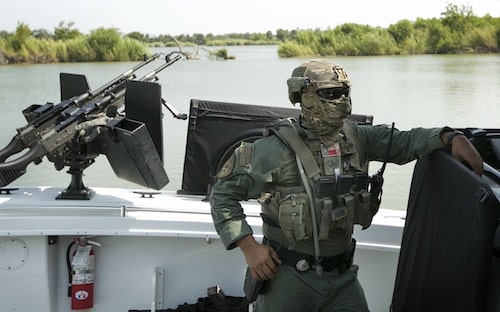The border-industrial complex has not been content to just count the money and gloat after receiving millions upon millions in “border security” dollars from the United States government. There is more easy money to be had if states can be convinced to take a bigger role aiding the US in building a police state along American borders.
Indeed, it appears that the border-industrial complex has hit the jackpot with the Texas state government.
John Burnett reported Saturday on the National Public Radio (NPR) show Weekend Edition that the Texas government “launched Operation Strong Safety 14 months ago to crack down on border crime.” Focusing on Starr County along the Mexico border, Burnett relates that state police have increased by 233 percent their issuance of tickets in the county between 2012 and 2014.
But the roadside stops are not carried out for traffic tickets alone; incarceration and asset seizures are also objectives. “State troopers are stopping vehicles to see if they’re carrying marijuana, cocaine, or unauthorized immigrants, and to see if the car is stolen,” explains Burnett. The greatly increased police presence is predictably making many people in Starr County, some of whom comment in the Weekend Edition report, distressed and upset. It is also resulting in harassment, fines, and incarceration for plenty of people who are not violating anyone’s rights.
Burnett’s report suggests that, once “border security” is ramped up, the new status quo can quickly pick up additional special interests support. New support may come, for example, from businesses such as restaurants and hotels making meal and room sales to the new police, as well as from politicians and government employees and contractors who have dollar signs in their eyes at the prospect of increased tax revenues because of the state’s new “border security”-related spending.
And the spending and police state buildup continue. Notes Burnett:
In June, Texas Governor Greg Abbott signed into law a sweeping $800 million border security package that includes the hiring of as many as 250 troopers to be permanently stationed in the Rio Grande Valley.
Listen to the complete Weekend Edition report here:
Read a transcript of the report here.


